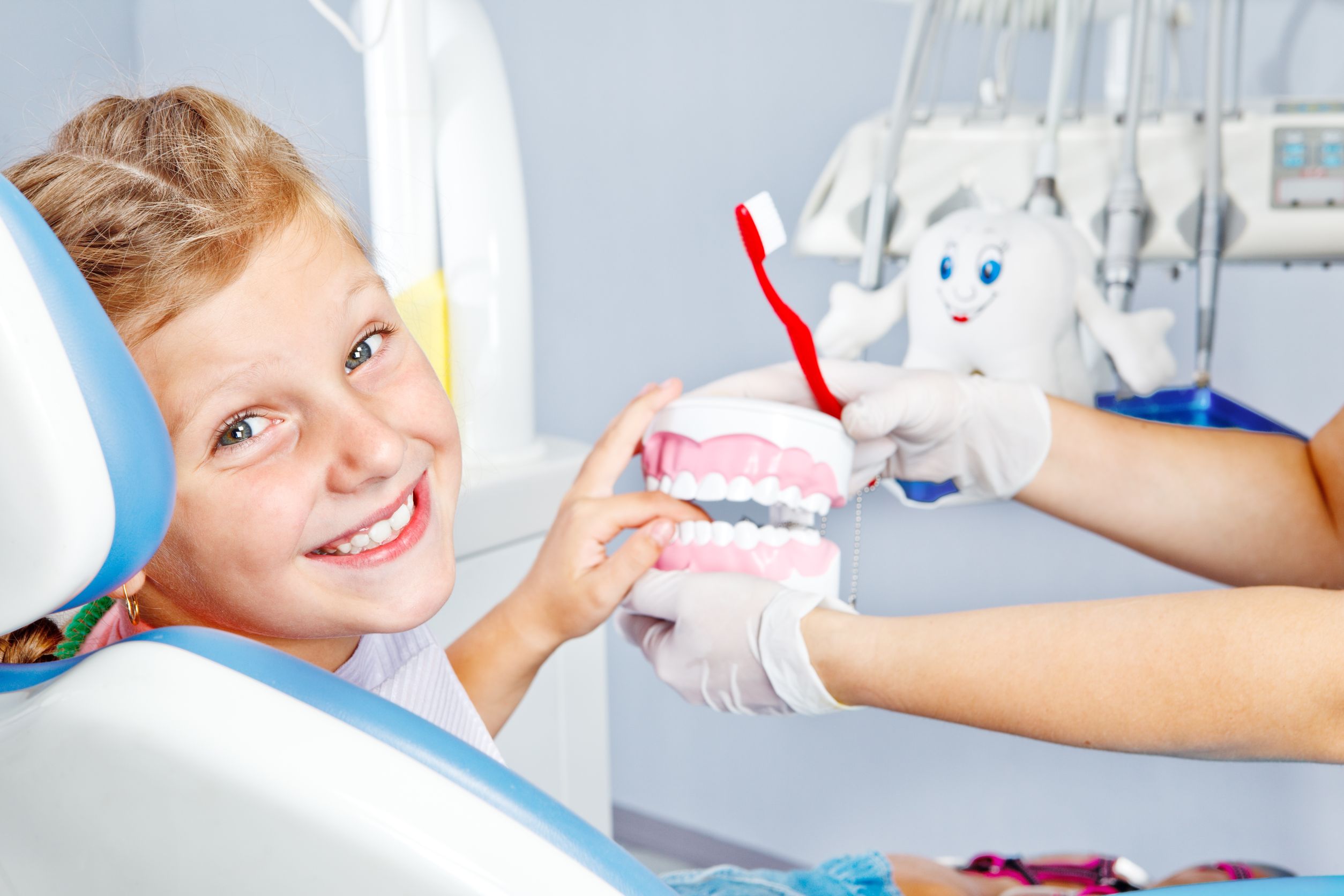Why are the primary teeth so important and in need of restoration?
It is very important to maintain the health of the primary teeth. Neglected cavities can and frequently lead to problems that affect the development of permanent teeth. Primary teeth, or baby teeth are important for proper chewing and eating, and for providing space for the permanent teeth. Primary teeth are also important in the development of speech and add to an attractive appearance. While the 4 front teeth last until 6/7 years of age, the back teeth are not replaced until 10/13 years of age.
Tooth decay and children no longer have to go hand in hand. At our clinic, we are most concerned with all aspects of preventive care. We use the latest in dental sealant technology to protect your child’s teeth. Dental sealants are space-age plastics that are bonded to the chewing surfaces of decay-prone back teeth. This is just one of the ways we will set the foundation for your child’s lifetime of good oral health.
Cavity Prevention
Most of the time cavities are due to a diet high in sugary foods and a lack of brushing. Limiting sugar intake and brushing regularly, of course, can help. The longer it takes your child to chew their food and the longer the residue stays on their teeth, the greater the chances of getting cavities.
Every time someone eats, an acid reaction occurs inside their mouth as the bacteria digest the sugars. This reaction lasts approximately 20 minutes. During this time the acid environment can destroy the tooth structure, eventually leading to cavities.
Consistency of a person’s saliva also makes a difference; thinner saliva breaks up and washes away food more quickly. When a person eats diets high in carbohydrates and sugars they tend to have thicker saliva, which in turn allows more of the acid-producing bacteria that can cause cavities.
Tips for Cavity Prevention
- Limit the frequency of meals and snacks.
- Encourage brushing, flossing and rinsing.
- Watch what your child drinks.
- Avoid giving your child sticky foods.
- Make treats part of meals.
- Choose nutritious snacks.
The first baby teeth that come into the mouth are the two bottom front teeth. You will notice this when your baby is about 6-8 months old. Next to follow will be the 4 upper front teeth and the remainder of your baby’s teeth will appear periodically. They will usually appear in pairs along the sides of the jaw until the child is about 2 1/2 years old.
At around 2 1/2 years old your child should have all 20 teeth. Between the ages of 5 and 6 the first permanent teeth will begin to erupt. Some of permanent teeth replace baby teeth and some don’t. Don’t worry if some teeth are a few months early or late as all children are different.
Baby teeth are important as they not only hold space for permanent teeth but they are important to chewing, biting, speech and appearance. For this reason, it is important to maintain a healthy diet and daily hygiene.



 WhatsApp us
WhatsApp us